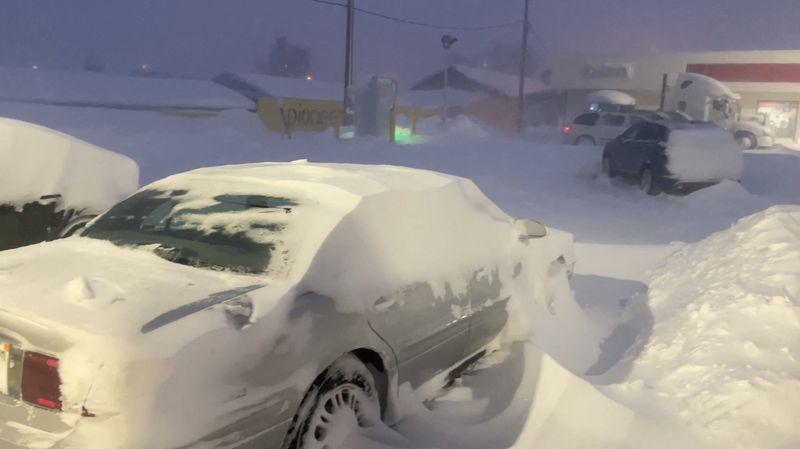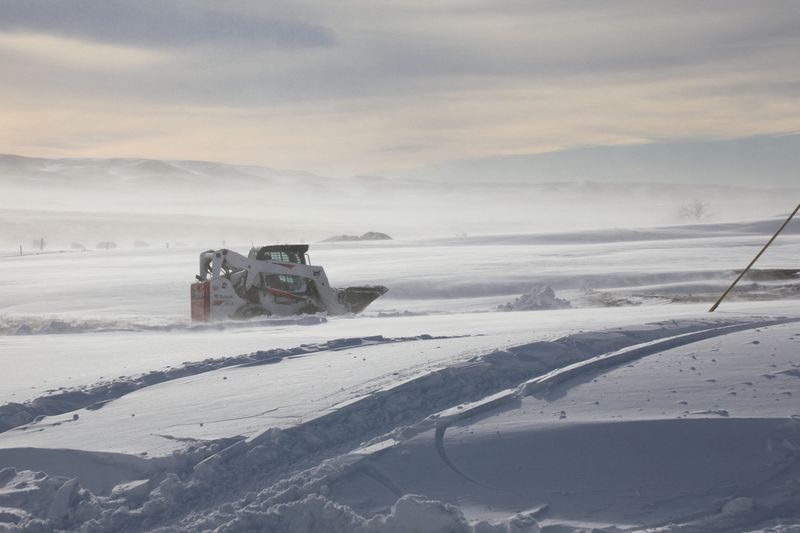By Tyler Clifford
(Reuters) – A budding winter storm is expected to bring frigid conditions across much of the United States this week, including snowfall likely to cause travel delays ahead of the Christmas holiday weekend, forecasters said on Monday.
The Midwest and Great Lakes region could see a major blizzard beginning Thursday, while cold air moving east could bring a flash freeze caused a rapid temperature drop across the country, according to the National Weather Service.
“It does not look like a good day to be traveling across the Midwest on Friday,” said Greg Carbin, chief of forecast operations at the NWS Weather Prediction Center. “It’ll definitely be feeling like winter almost from coast to coast.”
Airports and roads from Chicago to the St. Louis areas could suffer disruptions beginning Thursday, while the rest of the country battles with falling temperatures, he warned.
The biggest risk exists in the states of Kansas, Nebraska and Iowa, as well as parts of Wisconsin, Illinois, Indiana and Michigan. Snow amounts could exceed a foot, Carbin said.
Southern states could have rainfall and thunderstorms through Thursday, after which temperatures could drop significantly. Wind chill temperatures in the immediate Gulf Coast could reach 30 degrees, he added.
“Wind chill temperatures will be frigid,” he said.
The NWS also warned of “bone-chilling” cold in parts of Washington state through the Northern Plain states, including Montana, Wyoming and the Dakotas.
Parts of Montana could see the thermometer register below minus 20 degrees Fahrenheit (-29 C) on Tuesday, according to the NWS.
(Reporting by Tyler Clifford in New York; Editing by Alistair Bell)

